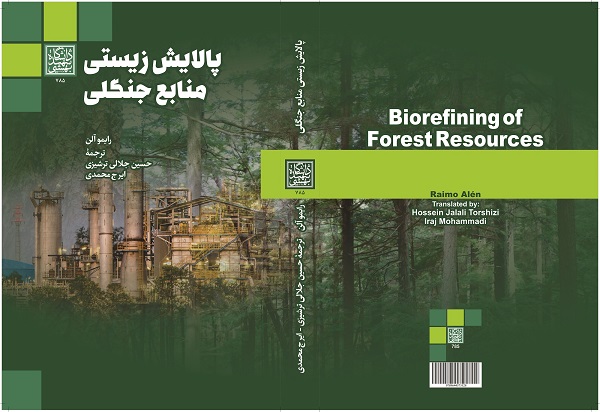
The book "Biorefining of Forest Resources" translated by Dr. Hossein Jalali Tarshizi, assistant professor of the Faculty of New Technologies and Aerospace Engineering of SBU and Iraj Mohammadi, has been published recently by SBU Press in 501 pages.
Nowadays, planning and constructing new industries and technologies based on bio-based natural materials compatible with nature has found obvious and necessary importance to the extent that the future provision of materials and energy depends on sustainable and scientific use of nature.
Biorefining is the process of extracting and separating various bio-based products from biomass. In fact, in the new and growing technology of bio-refineries, following the example of oil refineries, biomass raw materials are converted into a diverse range of bio-based products including fuel, energy and chemicals.
Forest biomass resources are composed of various components such as lignin, cellulose, hemicelluloses, extraction materials, etc. The biorefinery can produce various bio-products such as fibers, fuels and bioenergies, chemicals, natural medicines, bioplastics and so on form any of these biopolymers and other bio-components. For example, from lignin, which used to be burned in pulp mills and is still more or less still burned in Iran, we can produce materials such as surgical sutures, adhesives, phenols, complexing agents, and surfactants, and from the black liquid, we can produce materials such as methanol, biogas and dimethyl ether in biorefineries. It is noteworthy that equipping current industries using forest and lignocellulosic resources with new biorefining technologies does not interfere with existing products and technologies and also provides significant economic benefits through the production of numerous high value-added by-products. Therefore, the product portfolio of forest industries becomes more diverse and the output of these industries changes from limited wood and paper products to a variety of bio-based products.
The present book presents in detail the principles and techniques of converting maximum forest resources into a wide variety of biomaterials and bioenergies, which will be useful for graduate students as well as researchers active in the fields of biomass, material technologies and bioenergies.


